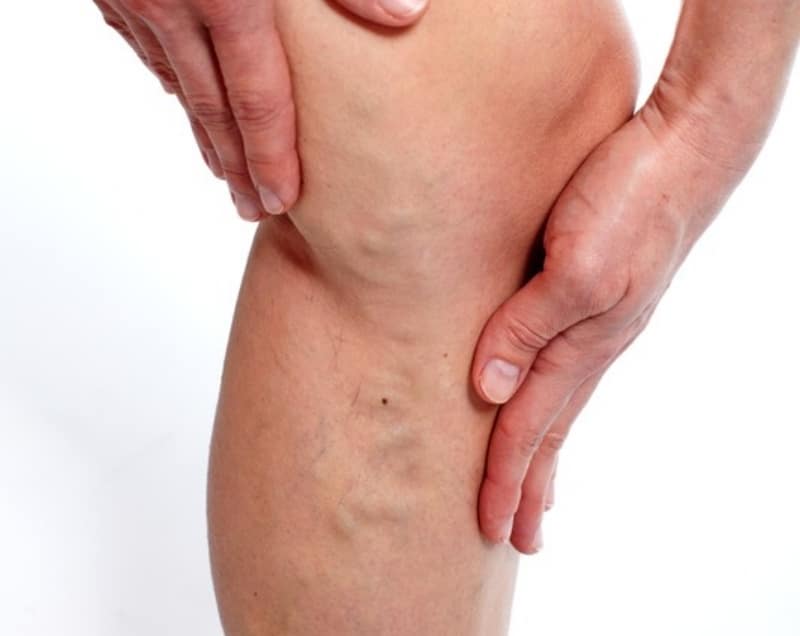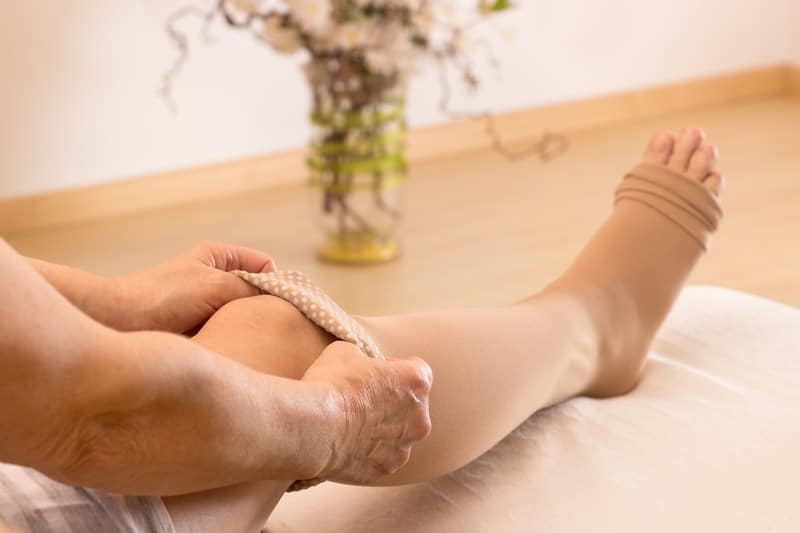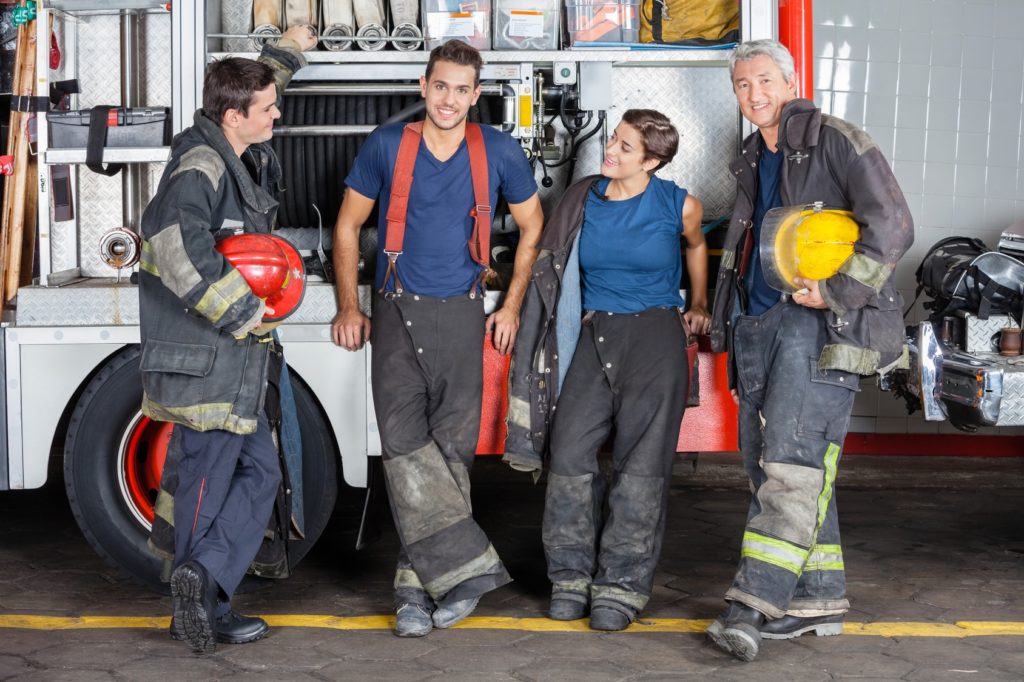Varicose Veins Symptoms That Can Save Your Life
 Vein disease is incredibly common in the United States. According to some estimates, 50-60 million American men and women have some form of venous disease. Varicose veins are among the most common of these.
Vein disease is incredibly common in the United States. According to some estimates, 50-60 million American men and women have some form of venous disease. Varicose veins are among the most common of these.
In fact, varicose veins are so common that it can be easy to forget that they could also be an indication of more serious health issues lurking beneath the surface. That is why it is a good idea for anyone with even the slightest sign of venous disease, including varicose veins, to at least consult a vein specialist to see whether they are at risk for more serious conditions, such as chronic venous insufficiency (CVI), leg ulcers, or worse.
Varicose Veins Symptoms That Could Be Life Threatening
Not all symptoms hold the same weight, however. It is rare, but it is not impossible for clots to form in the visible veins and move into the deeper venous system.
If your leg suddenly swells and becomes painful, hard, hot, and red, or if you experience lightheadedness, rapid pulse or chest pain, seek medical help immediately. A leg that swells suddenly can be a sign of a blood clot (deep vein thrombosis); accompanying chest pain and lightheadedness could mean the clot has moved into your lungs (pulmonary embolism or PE), which can be fatal.
When is it Time to Consult a Vein Specialist For Your Varicose Veins?
While not immediately life threatening, it is still very important that you do not ignore these serious indications of chronic venous insufficiency. If left untreated, the condition could lead to leg ulcers or even dangerous blood clots. Seek treatment if your:
- Varicose veins bleed
- Legs bleed after minor injuries
- Skin around veins changes color
- Vein hardens
- Skin on ankle and calf becomes thickened and discolored
- Veins or legs become itchy, dry or scaly
- Visible sores or rash-like areas on the leg, or near the ankle
- Dull aching leg pain that interferes with your daily activities
- Persistent leg fatigue
- A family history of clot-related conditions
In Short, Don’t Ignore any Symptom of Varicose Veins
There are other more typical symptoms of varicose veins. Even seemingly harmless symptoms should not be ignored. It may happen slowly, but vein disease is always chronic and progressive.
- Visibly twisted and bulging veins
- Enlarged purple veins
- Itching of the skin around veins
- A feeling of heaviness in the legs which often gets worse when standing or sitting for extended periods
- Mild swelling of the feet and ankles
Stephanie M. Dentoni, MD, a vein disease expert who practices at the California Vein & Vascular Institute in Stockton, California, has treated several people who thought they didn’t have significant symptoms when they, in fact, did.
“…They have learned to live with the discomfort and think it's a normal thing,” says Dantoni. “For some, it’s only when they are asked specific questions about leg discomfort such as if their legs ached at the end of the day, if they have a little bit of swelling, if their legs feel better when elevated at the end of the day, that they discover there is an underlying problem with their vein health.”
Who Should I Consult if I am Concerned about my Varicose Veins?
Not all vein clinics offer the same kind of expertise. Clinics that focus on diagnosing and treating venous disease of the lower limb will have more experience treating your specific condition and can offer you the newest and most effective procedures available.
Phoenix, Arizona Vein Doctor Nurse Practitioner Jilanne Rose, of Advanced Vein Institute of Arizona, has successfully treated thousands of individuals with varicose veins, spider veins, leg ulcers, chronic venous insufficiency, and other venous problems of the lower limb. She cautions that there are some primary care physicians who may tell patients that their vein symptoms are nothing to worry about, or that there is no point to treatment because the symptoms will just come back.
“Consequently, patients will go years without vein treatment, and then encounter a serious problem that’s much more difficult to fix,” she notes, adding that diagnosis and treatment of vein disease has progressed a lot in the last few years.
“For anyone with symptoms of varicose veins, even without physical discomfort or pain, it’s safest to take the ‘prevention’ route and see a vein specialist,” she urges. “An exam and duplex ultrasound can detect early signs of varicose veins, even those that may not be visible to the human eye.”
To find out if you are at risk for chronic venous insufficiency, or any other venous disease of the lower limb, download and fill out this assessment.
Want to speak with someone right away? It's really easy to talk to Jilanne at our vein center. Just call the office or schedule now get a conversation started about your symptoms and whether vein treatment may be needed.
You May Also Like: How to find the Best Varicose Vein Clinic for your Vascular Health; Deep Vein Thrombosis blood clots can be deadly but are preventable; Treatments and Intervention for Venous Insufficiency
Varicose Veins worse in Summer Heat? If it seems like your varicose veins symptoms seem to worsen in the summer heat—especially for those of you who live in hot climates like Arizona—you are not imagining it. Talk to a qualified vein specialist and they will tell you that heat does have an effect on your…
Read MoreLet’s face it—a big part of the reason that you are in Arizona is because you don’t enjoy golfing in the snow or hiking in the rain. And now that you are here, there is no reason to let anything get in the way of your active life—not even the discomfort of varicose veins. Although…
Read MoreYounger adults in the U.S. are searching for options to deal with varicose veins…REALLY? Health and Google statistics are starting to show that younger and younger people are seeking treatment for conditions such as varicose veins, chronic venous insufficiency (CVI), and other health conditions usually associated with older adults. Health officials are attributing this…
Read MoreHas a woman ever said she loves wearing high heels because they are just so comfortable? Uh uh. Or because it is just so easy to walk in them? Not likely. High heels are popular because of the way they make the legs of the wearer appear.
Read MoreIf you just googled “compression stockings for varicose veins” to find this article, you are far from alone. Millions of Americans have looked at compression stockings as a non-surgical alternative to help deal with the discomfort of varicose veins and other peripheral vascular concerns. Perhaps not knowing that there are newer, effective, and minimally invasive procedures…
Read MoreIt can hurt to care–just ask any nurse. As a profession, nurses experience some of the highest rates of varicose veins and Chronic Venous Insufficiency (CVI) in the country. In fact, in one study by the NIH, 63 per cent of participating nurses were shown to have at least one sign of CVI. Nurses will know…
Read MoreOne might think that the biggest cause of injury among American firefighters would be burns and collapsing structures. However, more than just skin and bones, it is the firefighter’s vascular system that is at risk. There are a number of reasons why firefighters are especially susceptible to vascular injury, and why they in particular need…
Read MorePerhaps the most important thing to know about Radiofrequency Vein Ablation, is that it has a high success rate in treatment of varicose veins. Additionally, it is minimally invasive, minimally painful, has low rates of complication, can be performed in-office, and has a very rapid recovery time, usually about a day. The Venous Ablation Process…
Read MoreThe concern about having or developing Chronic Venous Insufficiency (CVI) is a great reason to have your varicose veins fully assessed by a qualified Vein Specialist. Why should I be concerned about the symptoms of Chronic Veins Insufficiency? Chronic Venous Insufficiency, also known as Venous Reflux Disease or Venous Stasis, refers to a condition of inadequate…
Read MoreCan Varicose Vein Pain be Eliminated? It is the end of a long day, and suddenly you realize that the varicose veins that you barely considered this morning are working hard to get your attention. They ache, and your legs feel heavy and are getting swollen. Especially if you have been ignoring them all day,…
Read More

